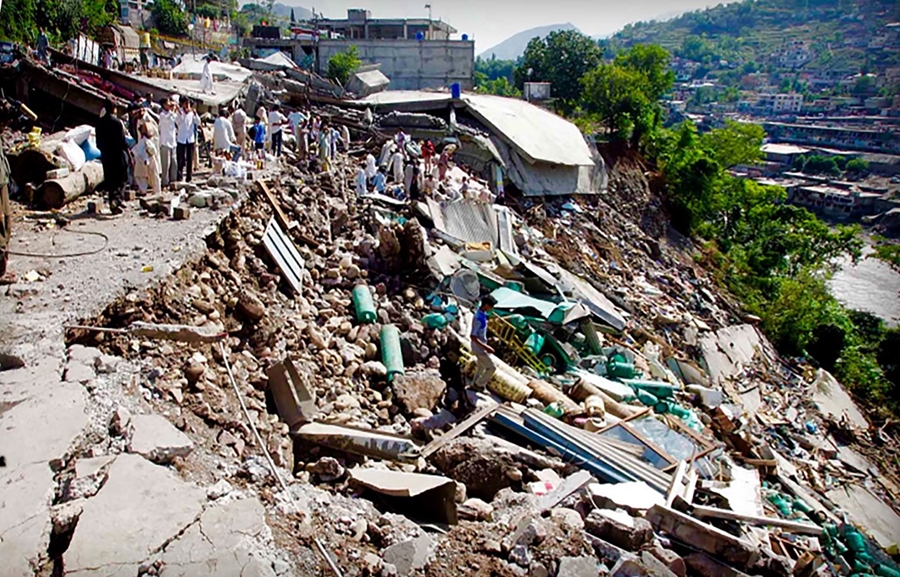
Ikramuddin 'Ikram' Bahram, a doctoral student in environmental dynamics, will present a talk on the "Perception of Earthquakes and Risk in Muslim Communities" at 3:30 p.m., Monday, March 14, in Gearhart Hall, room 149. Focusing on the communities in four countries: Afghanistan, Pakistan, Morocco and Libya, his extensive research and thorough surveys of earthquake survivors is groundbreaking in linking the science of earthquakes to community and individual perceptions of danger and influence in these seismically active countries and communities.
Bahram is a Ph.D. candidate finishing his research in environmental dynamics with a focus on earthquakes and perceptions of seismic risk in the wider Muslim world, and particularly in his home country of Afghanistan. Before coming to the United States on a Fulbright Scholarship, he worked extensively on earthquakes, mass-wasting and landslides, flooding, and natural resource management in the mountainous communities of northern Pakistan and northeastern Afghanistan.
He implemented a successful $3 million cross-border project, called PAMIR, along the famous Oxus River in Afghanistan that required multiple agency collaborations. Since coming to the U of A, he has been actively researching seismology and disaster management and has published several peer-reviewed articles and reports on earthquake and disaster relief and recovery, snow avalanches and earthquakes in Afghanistan, and seismic risk perception and its influences of religion, culture, tradition and collective memories — many in English and Dari (one of the two national languages of Afghanistan).
About Ikram Bahram: He obtained his B.S. (with honors) in geology from the University of Peshawar in Pakistan. His thesis focused on the 2010 mega-monsoon flooding in Pakistan. He obtained his M.S. in geology from the Department of Geosciences at the U of A. He is currently completing his Ph.D. dissertation under professor Tom Paradise and will be graduating this year. In the international hazards and risk communities, his work has been called "innovative and leading-edge in melding science with aspects of culture, religion, geography and natural hazards policy and management."
Please feel free to attend this fascinating presentation at 3:30 p.m., Monday, March 14, in Gearhart 149 or virtually: Bahram Lecture.
Topics
Contacts
Jo Ann Kvamme, assistant director
Environmental Dynamics Program
479-575-6603,
Andra Parrish Liwag, director of communications
Fulbright College of Arts and Sciences
479-575-4393,